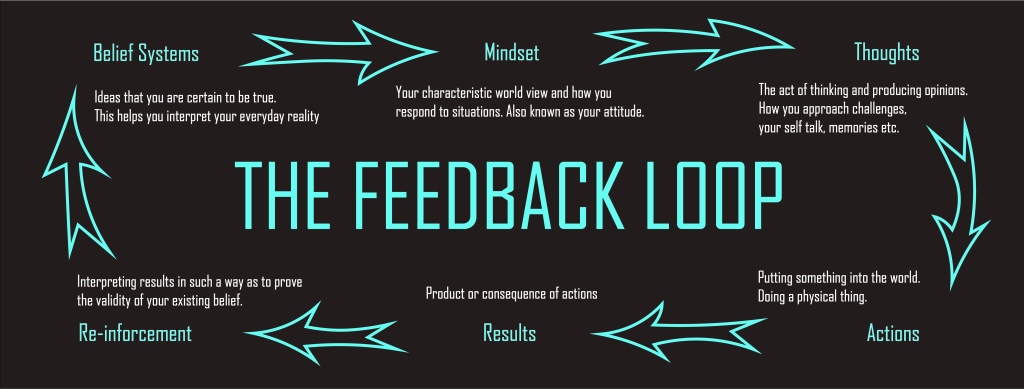Author: Susan Neethling,
19 February 2024
This post is an introduction to a 5 part series on the Habits and Game-Changing Mentality in High-School Rugby Teams.
What Wires Together Fires Together
The Biological Experience – How the brain works
Creating a game-changing mentality in any high-school rugby team requires unlocking the true potential of each player and fostering a collective game-changing mentality.
In the high-pressure world of high-school rugby, raw talent can only take you so far. While athleticism and technical skills are crucial, it’s often the mindset of a team that separates champions from contenders.
But how do we cultivate this winning attitude within a young team navigating the unique pressures of academics, social life, and the demands of the sport?
This journey begins with understanding the key ingredient for developing a game-changing mentality in high-school rugby – the fundamental role of socialisation in shaping our values, beliefs, and ultimately, our behavior on and off the field.

Throughout our lives, we actively absorb and share norms, customs, values, and ideologies through a process called socialisation.
This ongoing journey equips us with the essential skills and habits for navigating and contributing to our culture and society.
Within a sports team, each player brings their unique values, skills and experiences. What truly elevates performance is a shared foundation of core values, team culture, and a strong sense of team identity.
These elements, unlike the unpredictable bounce of the ball, are within your control, and actively cultivating them becomes your most potent weapon against the unknown.
Mark Manson’s Law of Avoidance: “The more something threatens your identity, the more you will avoid it.”
This applies not just to negative experiences like rejection, defeats or injuries, but also to positive ones like acceptance, unexpected victories or individual player success.
This is because our deeply ingrained belief systems define our identity, leading to unconscious self-rejection and avoidance behaviors.
A rigid sense of “who we are” can hinder adaptation and growth.
Therefore, foster a flexible team identity. Encourage your players to embrace growth and self-discovery with an open-minded “We’re always learning; let’s see what’s possible” attitude.
This doesn’t mean abandoning core values. In fact, it’s about building a strong culture where those carefully selected set of values serve as guiding principles, allowing the team to adapt and evolve while staying true to their essence.
By proactively shaping your team’s culture and identity, you equip them to handle anything that life and the game throws their way. They’ll not only thrive under pressure but also embrace unexpected opportunities, transforming even adversity into fuel for growth. Remember, a strong team isn’t forged by chance; it’s built on shared values, a growth mindset, and the courage to face uncertainty together.
Enter the Identity Feedback Loop:

Beliefs create mindsets that dictate your thoughts, which then dictate your actions, which produce your results. And your results reinforce the original belief.
Thinking vs. Feeling
Feelings and impulses are sprinkled throughout this loop, inciting smaller and larger interconnected loops.
This is why it is important to distrust your impulses and to seek dis-confirming information until you are sure that your belief systems and mindset are cultivated and not a result of haphazard happenings, and that they will actually lead you closer to your goal.
And that is our main aim. To start with the end result in mind, and find ways to forge neural pathways that align with our goals to create a team of boys who will really do whatever it takes to be a high performance team.
Emotions often present themselves as self-evident facts.
The confusion between feeling and thinking arises, in part, due to the immediacy and visceral nature of emotions.
When we experience a strong emotion, it’s like our subconscious is shouting, “This is real! This matters! This is how things are!”
However, understanding the evolutionary context of our minds and brains sheds light on why emotions act this way. Being right often affirms and strengthens our identities and sense of self-worth. This, in turn, leads us to seek out information, experiences, and relationships that confirm our existing values (a phenomenon known as confirmation bias). These values, deeply rooted in our emotions, ultimately influence the choices we make.
Furthermore, we often engage in self-justification, a crucial mechanism that helps us protect our sense of self as competent and morally upright individuals. This helps maintain our psychological well-being and solidify our sense of identity.
This is why your feelings/emotions about a situation will expand or shrink to fit in with the reaction we had in the moment:
We (over/under)-react to a perceived offense/compliment,
our emotions expand/shrink to fit the reaction (self justification),
the perception becomes a reality for us (we need to protect our sense of self),
our reality becomes our belief system, which influence our values and the choices we make.
The more you repeat the reaction, the more you confirm your emotions, the more your belief system is entrenched.
For most people, this building of reality happens unconsciously. You accidentally create the mindset that essentially permeates and governs every aspect of your life.
“Fish discover water last” Ethiopian proverb.
It is almost impossible to see the belief system that you are immersed in.
What is myelination and how does it relate to game-changing mentality in high-school rugby?
A brain process called myelination plays a vital role in this. It acts like insulation for nerve fibers, essentially speeding up how quickly signals travel. This, in turn, strengthens neural pathways tied to our beliefs and actions. The more we consistently hold onto certain beliefs or engage in specific behaviors, the more reinforced these pathways become. Consequently, changing our views becomes increasingly challenging. Imagine it like trying to reroute a well-worn path through a dense forest; the stronger the connections, the greater the effort required to forge a new one.
You must have a goal. Your goal must be attached to fulfilment – your ’why’ (not an outcome or a thing). The only thing that matters then becomes: “Will reacting the way that I’m reacting take me towards or away from that goal?”
This will lead to a positive emotional state that is resilient to the ups and downs of life. This creates self-respect and the ability to elevate ourselves with a healthy, consciously created steering mechanism.
It’s about cultivating a shared identity, fostering a growth mindset, and equipping your players with the mental tools to conquer challenges both on and off the field.
By leveraging the powerful influence of socialisation and its deep impact on our mindsets, you can empower your team to rewrite their own narratives of possibility. In doing so, you pave the way for a legacy that transcends the final whistle, one marked by resilience, unwavering determination, and an enduring capacity for growth.
“Every action we take today, is a vote for the team we will be tomorrow”
adapted from James Clear
Next up in our 5 part series on the Habits and Game-Changing Mentality in High-School Rugby Teams. :
PART 2: THE GAME-FACE ON MINDSET
STRESS IS WHERE COURAGE AND RESILIENCE LIVES
Join me on a transformational journey to crack the code of high-performing teams. We’ll dive deep into the mental tools and strategies that ignite relentless drive, equip you to master adversity, and reprogram habits for peak performance, even under pressure.
Want more?
Contact me for immersive workshops to transform your team’s psychology.

CONTACT ME
Rewrite your limits, one ruck at a time.
Craft a winning season fueled by a growth mindset, shared values, and unwavering grit. Remember, you’re not just players, you’re the architects of your rugby destiny.
So let’s huddle up, game plan big, and make each tackle count.
Cheers to leaving it all on the field, and beyond!
Susan